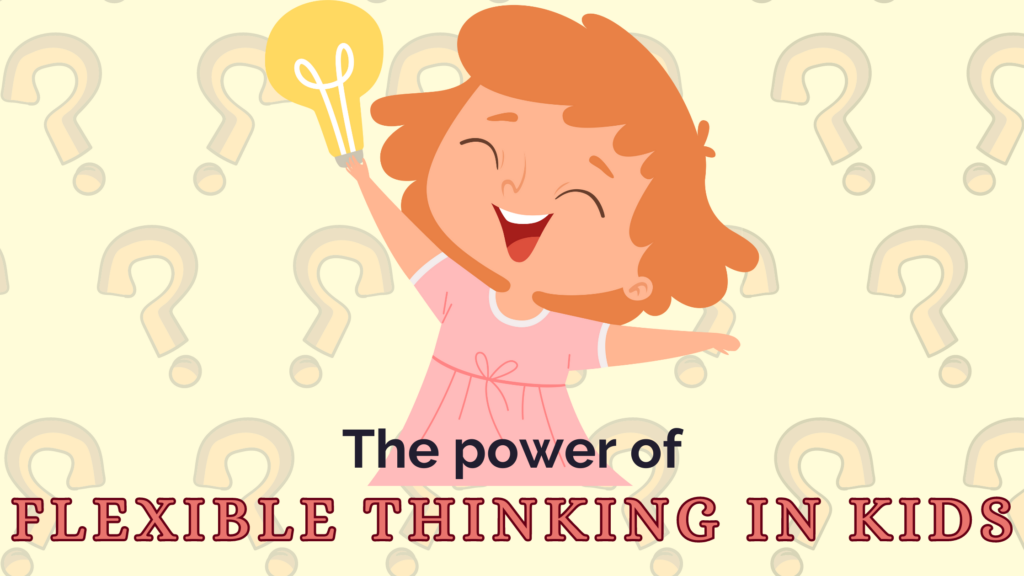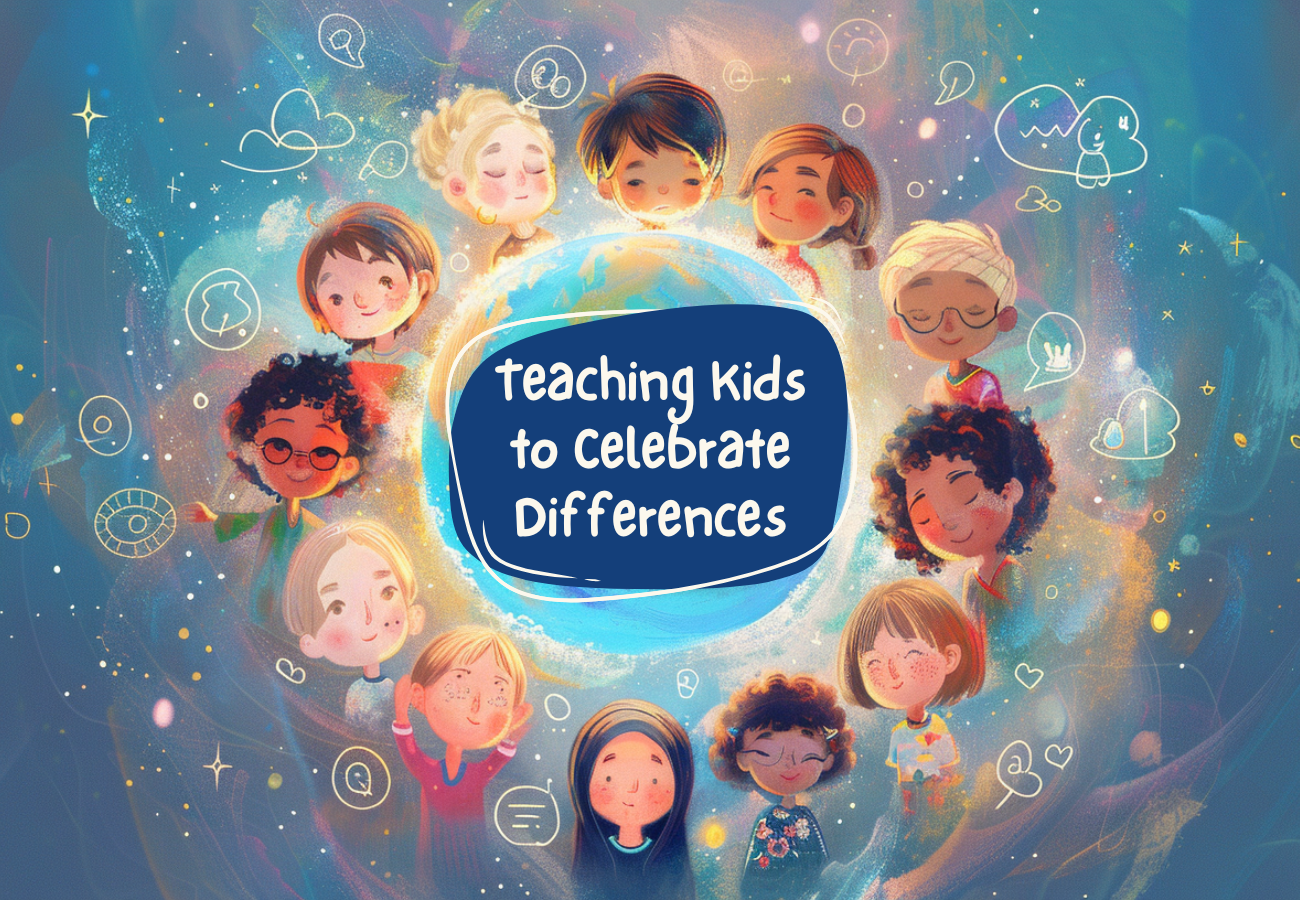The Power of Flexible Thinking in Kids: Nurturing Young Minds

In today’s fast-paced world, adaptability and creativity have become essential skills for success. As parents, educators, and caregivers, we play a vital role in fostering these abilities in our children. One key skill that holds immense potential for young minds is “flexible thinking.” Let’s explore the fascinating world of flexible thinking in kids, how it shapes their cognitive growth, and practical strategies to nurture this skill from an early age.
What is Flexible Thinking?
Flexible thinking, also known as cognitive flexibility or mental agility, is the ability to adapt and adjust one’s thinking in response to different situations, perspectives, or challenges. It enables children to shift between concepts, ideas, or problem-solving strategies with ease, avoiding rigid thought patterns. Kids with flexible thinking can explore various viewpoints, think creatively, and navigate novel or complex situations effectively.
Examples of Flexible Thinking and Its Benefits
Flexible thinking comes to life in various scenarios, showcasing its versatility and importance in problem-solving and decision-making. Here are some real-life examples that demonstrate the value of flexible thinking in children:
- Adapting to Change: When plans change unexpectedly, flexible thinkers quickly adjust and find alternative ways to enjoy the moment.
- Creative Problem-Solving: Kids with flexible thinking explore multiple approaches and embrace unconventional ideas to tackle challenges.
- Seeing Different Perspectives: Children demonstrate open-mindedness by actively listening to others and engaging in constructive discussions.
- Handling Unexpected Situations: A child’s ability to adapt behavior based on different contexts without resistance demonstrates flexible thinking.
- Embracing New Learning Opportunities: Flexible thinkers persist and adapt their strategies to improve their understanding and succeed in learning.
- Role Play and Pretend Play: Imaginative play allows kids to switch roles and adapt to new scenarios, promoting flexible thinking.
- Handling Unforeseen Obstacles: Flexible thinkers modify their approach to stay competitive when faced with unexpected challenges.

Cultivating Flexible Thinking in Children
As parents, educators, and caregivers, we can play a crucial role in nurturing flexible thinking in children. Here are effective approaches to support their cognitive development:
- Encourage Open-Mindedness: Create an environment where kids feel comfortable exploring new ideas and considering different perspectives. Mind that open-mindedness is one of the crucial values to instill in your kids by age 10.
- Promote Problem-Solving Skills: Engage children in puzzles, brain teasers, and creative challenges that require flexible thinking.
- Provide Diverse Experiences: Expose children to a variety of cultures, experiences, and situations to broaden their understanding of the world.
- Model Flexible Thinking: Lead by example, demonstrating open-mindedness, adaptability, and a willingness to learn from mistakes.
- Encourage Exploration and Curiosity: Support children’s natural curiosity by allowing them to explore new interests and ask questions.
- Teach Resilience: Help children view setbacks as learning opportunities and emphasize the importance of adapting strategies when faced with obstacles.
- Engage in Pretend Play and Imagination: Encourage imaginative play and storytelling to promote creativity and flexible thinking.
- Provide Varied Problem-Solving Opportunities: Offer diverse puzzles, games, and activities that require flexible thinking.
- Support Reflection and Metacognition: Encourage children to reflect on their thinking processes and consider alternative approaches. Also these techniques help nurture problem-solving skills in your kids.
- Emphasize Growth Mindset: Foster a growth mindset that encourages children to embrace challenges and celebrate the process of learning.
Engaging Activities to Promote Flexible Thinking
Make learning flexible thinking enjoyable and interactive with these creative activities:
- What If Scenarios: Encourage kids to imagine “what if” scenarios and explore alternative outcomes to stimulate their imagination.
- Brainstorming Sessions: Engage children in brainstorming to find multiple solutions to problems and dilemmas.
- Create Story Chains: Foster flexible thinking and cooperation by building stories one contribution at a time.
- Reverse Day: Challenge kids to think differently by doing daily routines in reverse order. Aslo, “Yes Day” would be a super-fun activity.
- Pattern Play: Use colorful blocks or stickers to create patterns and encourage children to modify them with new elements.
- Improv Games: Engage in acting exercises or role-playing to encourage quick thinking and adaptability.
- Riddles and Puzzles: Provide lateral thinking puzzles and logic puzzles to promote creative problem-solving.
- Flexibility in Art: Encourage kids to explore various art mediums and techniques, emphasizing creative freedom.
- Sorting and Categorizing Games: Use diverse objects to challenge children to sort them based on different criteria.
- Outdoor Nature Hunt: Go on a nature hunt and encourage kids to find imaginative ways to use the objects they collect.
Remember, the journey of developing flexible thinking is about celebrating the process and encouraging curiosity. By making these activities enjoyable, kids will naturally develop this valuable cognitive skill while having fun.
Join us on AliciaOrtego.com as we explore the boundless potential of kids’ flexible thinking, understanding how it shapes the leaders, innovators, and problem-solvers of tomorrow, and why it is an indispensable tool for thriving in an ever-changing world. Let’s embark on this exciting journey together!
More articles

Teaching Kids to Celebrate Differences Through Books
Why Books Matter in Teaching Kids About Differences Teaching kids to celebrate differences through books is one of the most effective and natural ways to build a more inclusive future. Stories have long served as windows into other lives, cultures, and perspectives. When children read books that highlight diversity, inclusion, and empathy, they begin to […]

How Technology Can Empower Your Kids to Learn, Grow, and Thrive
Technology often gets a bad rap when it comes to its effects on children, including issues related to screen time, cyberbullying, and online distractions. While these concerns are valid, these misconceptions should not overshadow its incredible potential to enhance education, creativity and well-being for your child when used responsibly and mindfully. When used appropriately, technology […]

Using Alicia Ortego’s Books in the Classroom: Tips and Examples
In today’s classrooms and after-school programs across America, teachers and educators are constantly looking for effective ways to support children’s social-emotional learning (SEL). Alicia Ortego’s My Superpower books have become a favorite tool for many educators to encourage kindness, mindfulness, confidence, and other important values in young learners. Here are some real-world-inspired ways teachers and […]



